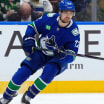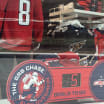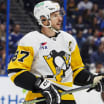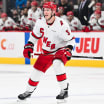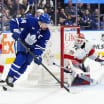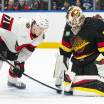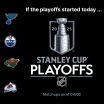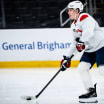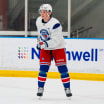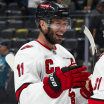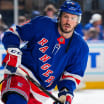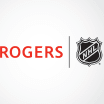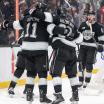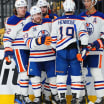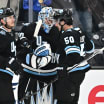In NHL.com’s Q&A feature called “Sitting Down with …” we talk to key figures in the game, gaining insight into their lives on and off the ice. This week, we feature Adam Burt, a former NHL defenseman now working as a pastor and author.
Burt talks entering ministry after hockey career, becoming author with NHL.com
Former defenseman draws upon stories from playing days in new book
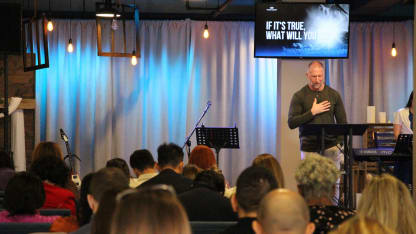
© Adam Burt
Adam Burt knows all about taking the path less traveled.
An NHL defenseman who played 737 games during 13 seasons with the Hartford Whalers, Carolina Hurricanes, Philadelphia Flyers and Atlanta Thrashers, Burt found his calling in the ministry after he retired in 2001.
After the terrorist attacks of Sept. 11, 2001, he became a pastor at a church in New York, and since 2008 has been the team chaplain for the New York Jets of the NFL.
Now he's the author of a book, "The Longest Game -- Winning in Life: How to thrive in life and fulfill your God-given purpose." The name comes from playing in the Flyers' five-overtime, 2-1 win against the Pittsburgh Penguins in Game 4 of the 2000 Eastern Conference Semifinals, the longest game of the modern era (92:01 of overtime), and stories in the book pull from his playing career.
"I feel like God's given me a unique front seat to people's lives, and kind of like high-level people," he said. "So, I thought, you know what? There's something there. I should share something."
Burt shared with NHL.com some of his hockey stories, how he fits them into his sermons, details of his “American Idol”-like tryout with the Jets and more.
What was the thinking behind calling the book "The Longest Game" and splitting it into three sections, like three periods in a game?
"I didn't get to win a Stanley Cup or do anything like that, but you remember that 2000 team where we played the longest game. And honestly, I was getting worried, because there's a few of them that were getting close to breaking the record and I was like, ‘I better do this or I'm going to have to change the title.’ I was going to initially just focus on that and take little tidbits of that and then put it into kind of faith and winning in life, that type of thing. And then as I got into that, I thought, ‘You know what? There's just so many great stories and stuff.’ ... Wayne Gretzky and I, we squared off one time. There's a 5-on-5 brawl and then we just happen to be paired up. I'm like, ‘I don't want him, he's too small, it looks bad.’ Plus, you're not going to fight Wayne Gretzky, all you can do is lose, so I pushed him away, and he grabs a hold, and he's like, ‘Oh no, man, just stay here.’ I'm a rookie and Wayne Gretzky says this. I'm like, 'Oh my gosh, will you sign my stick afterwards?' I just have so many stories."
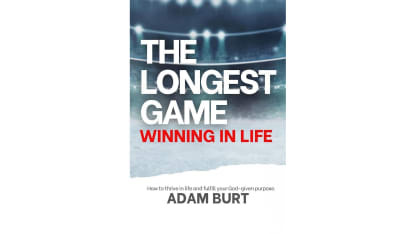
© Adam Burt
May 4 will mark the 25th anniversary of that five-overtime game you played in with the Flyers against the Penguins. You played 47 shifts totaling 33:44 of ice time. What are some of the things you remember from that game?
"I have a lot of vivid memories of that one. I do remember the fourth overtime I had a wide-open net and missed the net. I've relived that so many times. I can't speak for the other players, but I know it was tense. And the room in between periods, when you're in the game it's just going so fast, you don't have time to think. But in between periods, that's where it was hard, because it was just you kind of wrestling with your thoughts and things like that. And it was eerily silent in between the first few overtimes.
"And then I remember this one clear as day, is Keith Jones ... he hates working out and he had the ‘dad bod’ to prove it too. But everyone respected him because he was such a good leader, hard-nosed guy. And so 'Jonesy' gets up and he says, in the dead silence, the tension, he gets up and he goes, 'Fellas, I got something to say.' He stands up, and he's got no shirt on, it's just pathetic looking at him. He's walking around, and everyone's kind of dialed in on, what's he going to say? And all of a sudden he says, 'It's official. Next season, I'm going to start working out.' We all lost it, cracked up laughing. It was like we had permission to laugh and kind of enjoy the moment and kind of jump in. That was a cool moment. And there was one other one where we're kind of all sitting next to each other, and I didn't even know who started it. It was like the third overtime and they’re like, 'Hey guys, I don't got anywhere to go tonight. Do you?' The guy would look to the guy sitting next to him and say, 'No, I don't have anywhere to go. I can play all night if we need to.' And it was just kind of this thing all the way around the room and then it was like, OK, we were going to win or die trying. It was just a really cool moment."
At what point does it go from intense to just absurd with how long you played?
"I was trying to stay cranked up as much as I could. I'm a coffee drinker in between periods but it gets to be like the sixth period, and you're like, ‘OK, I’ve got to dial back, I can't be doing this, drinking 8 million cups of coffee.’ For me, the whole thing just felt kind of like, you know, weighty and ‘Oh my gosh, this is a big deal.’ The game prior to that, Andy Delmore scored in overtime to put the series back to 2-1 and get us back into it. I will tell you this ... I got a penalty [in the second period], so I did what every good Christian guy would do, I started cutting a deal with God. ‘Oh God, oh God, get me out of this. Don't let them score and I promise I will give money, I will go on a mission trip, do all that stuff.’"
Which is the more surprising career turn for you? Becoming a pastor or becoming an author?
"Definitely the pastor thing was out of left field. You can ask any of my teammates, I was always kind of the crazy Jesus guy, he doesn't swear or do stuff like that. It was like the most shocking thing if an F-bomb slipped in practice. It was like, practice would stop, you're not allowed to say that. But I thought [when I was done playing], I'm going to get into broadcasting afterwards, and I'll just be involved in my local church. I was injured a lot my last season (2000-01), so I was doing a little bit of the color commentary and stuff, and kind of enjoyed it. And then after 9/11, my church is called Every Nation ... they saw the devastation and decided to plant a church in Manhattan (in New York City). My pastor was the guy they tasked to start the church, and so he called me and he's like, ‘I need you to help me do this.’ So, I jumped in, no idea what I was doing, and they just kind of threw me in and called me a pastor, and just kind of figured it out on the fly."
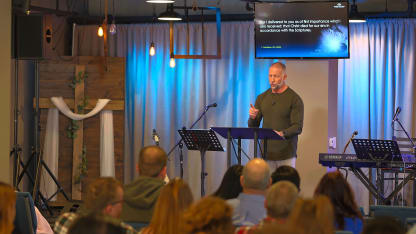
© Adam Burt
How much of your NHL career do you use in your sermons?
"In hockey, growing up ... when I first started, the only reason I made my first team is because my old man was the coach and I guess you can't cut your own kid. But I was just always a grinder then. So I'm just like, 'You know what? I’m just going to keep grinding and grinding.' I remember my old man told me, ‘You're the worst skater, you kept falling down, but then you always got back up again.’ And so, I think for me, even jumping into the ministry, playing pro sports, hockey in particular, gave me the grinding gear where I'm like, ‘OK, I'm going to figure this out.’ It's going to be ugly, you're going to fall down, screw up a lot, but then you just stay with it, and then you get all those reps, and then it becomes second nature. So, that was probably my journey heading into the pastoring. And then there's so many incredible stories and experiences we get to do being in the NHL, and so many characters that it's given me a lifetime's worth of great, captivating illustrations and stuff like that."
Besides Keith Jones, are there other players that you talk about?
"I remember in Hartford, we just had no identity. We weren't a scoring team. We weren't physical. And then we made a [move] for a big winger, Stu Grimson, The Grim Reaper. There's a verse of the Bible, it says, 'If God is for you, who can be against you?' I just switched that to, 'If Stu is for you, no one can be against you.' We all were tougher, we were bigger, stronger. And then another one I put in the book, I was in Atlanta, and there's this young kid, he wound up playing for a while, but he was a rookie then, Darcy Hordichuk. He's not a big guy; he's like 6-foot. And [Bob Probert] was with Chicago and they were kind of working us. We were down, losing in our home building. You could tell the fans were getting [angry]. And Darcy challenges the champ, center ice, the gloves come off, and he starts taking it a little bit, but then he starts really giving it. Our bench was all on our feet, everyone standing up, like, ‘Oh my gosh, this is happening.’ It was like all the momentum switched. In a similar way for me in my faith, we're coming up on Easter and for us, there was a time when humanity through sin, we were taking it. And then one man came and died on the cross and rose on the third day, and everything changed, all the momentum changed. That would be another story that I would translate that way."
How did you end up becoming team chaplain for the New York Jets?
"I was pastoring a church on the west side of Manhattan, and one morning this enormous guy came in. He's like 6-foot-5, just a huge, yoked guy. And I'm like, ‘If you can bench press three plates, I'm going to come talk to you.’ I'm just drawn to those guys. So, I'm chatting him up and he wouldn't tell me what he did. After the service, he must have enjoyed it, because he hooked up with me afterwards, and he's like, ‘Hey, I play for the Jets. My name is Kenyon Coleman’ -- big defensive lineman -- and Kenyon says, ‘You should come be our chaplain.’ And I'm like, ‘Whatever,’ but I gave him my card. Sure enough, I got a call the next day and they asked if I wanted to try out to be the chaplain. I'm like, ‘Try out? How does that work?’ It was literally, like, “American Idol” for preachers. You had to go in, preach in front of the guys, and then they would vote. It was crazy, but I wound up getting the gig. So, it's been a blast."
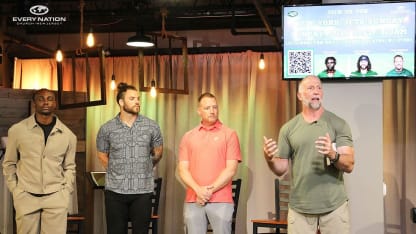
© Adam Burt
Are NFL locker rooms similar or different from NHL locker rooms? Or are athletes still athletes just with different equipment?
"Definitely there is a common bond, like a brotherhood. Just because of my NHL days, that gave me instant credibility with the guys. The thing that always translates, pro athletics, you can't have a bad day at the office. You have a bad day at the office, someone's coming for your job. And so just all the pressure that goes along with that. I haven't found a huge difference. I find that hockey and the NFL being so physical, grinding, tough, it's very translatable and relatable."
You've been a pro athlete, a pastor and now you're an author. What's next?
"That's a good question. My wife and I are kind of getting restless right now ... just kind of thinking that through. I'm not sure. It's a question I don't have an answer for right now. For me, I'm excited. I'm looking forward to doing something different. I love the Lord, I love people and all that. But it's been a 14-year NHL career and I've been doing this for over 20 and I am excited about what's next. So, probably not a great answer, but it's a real answer."

